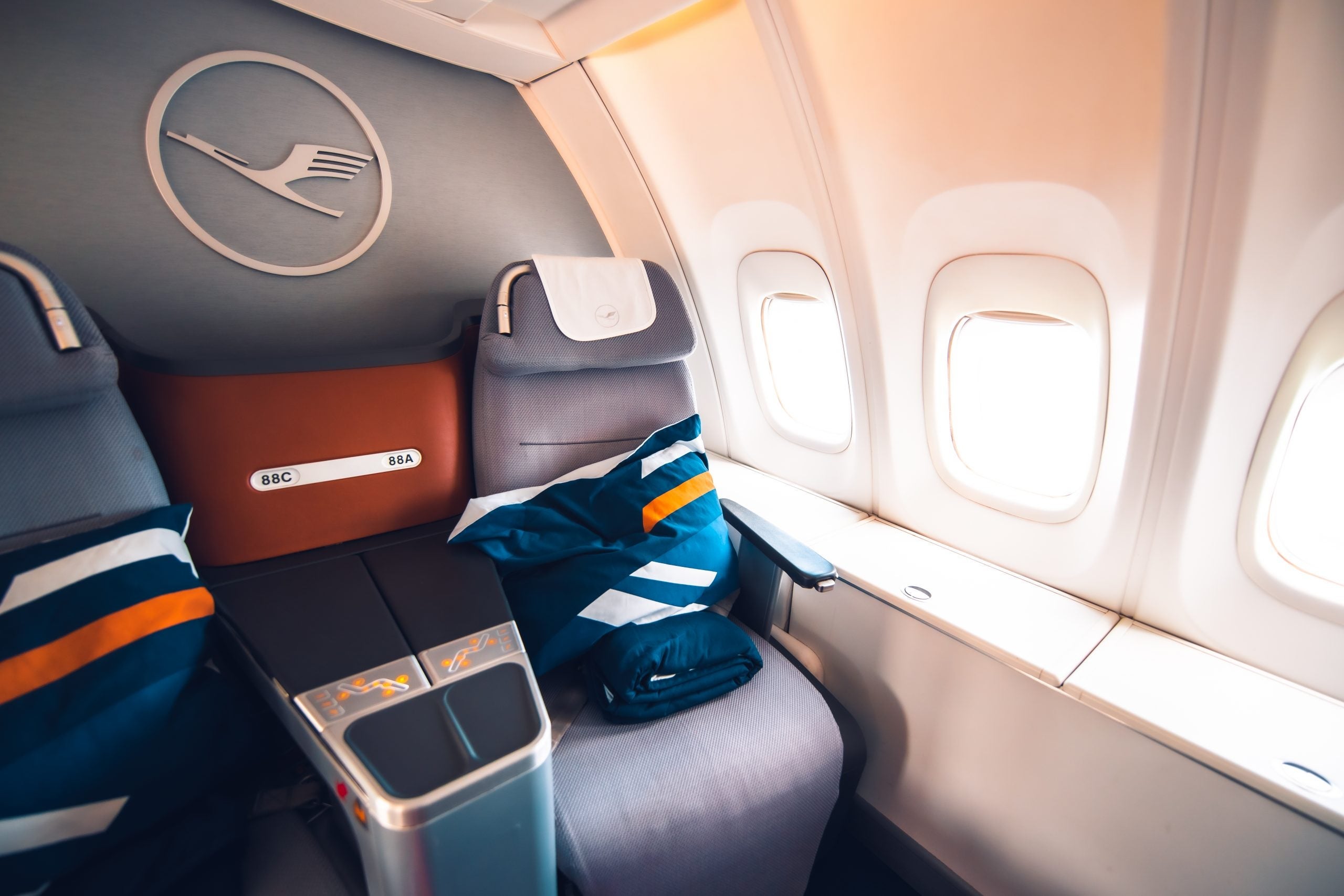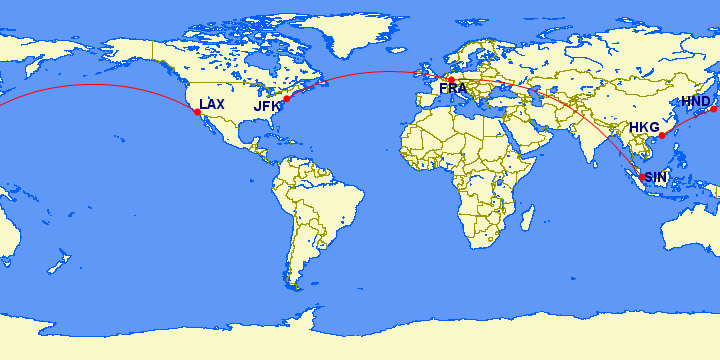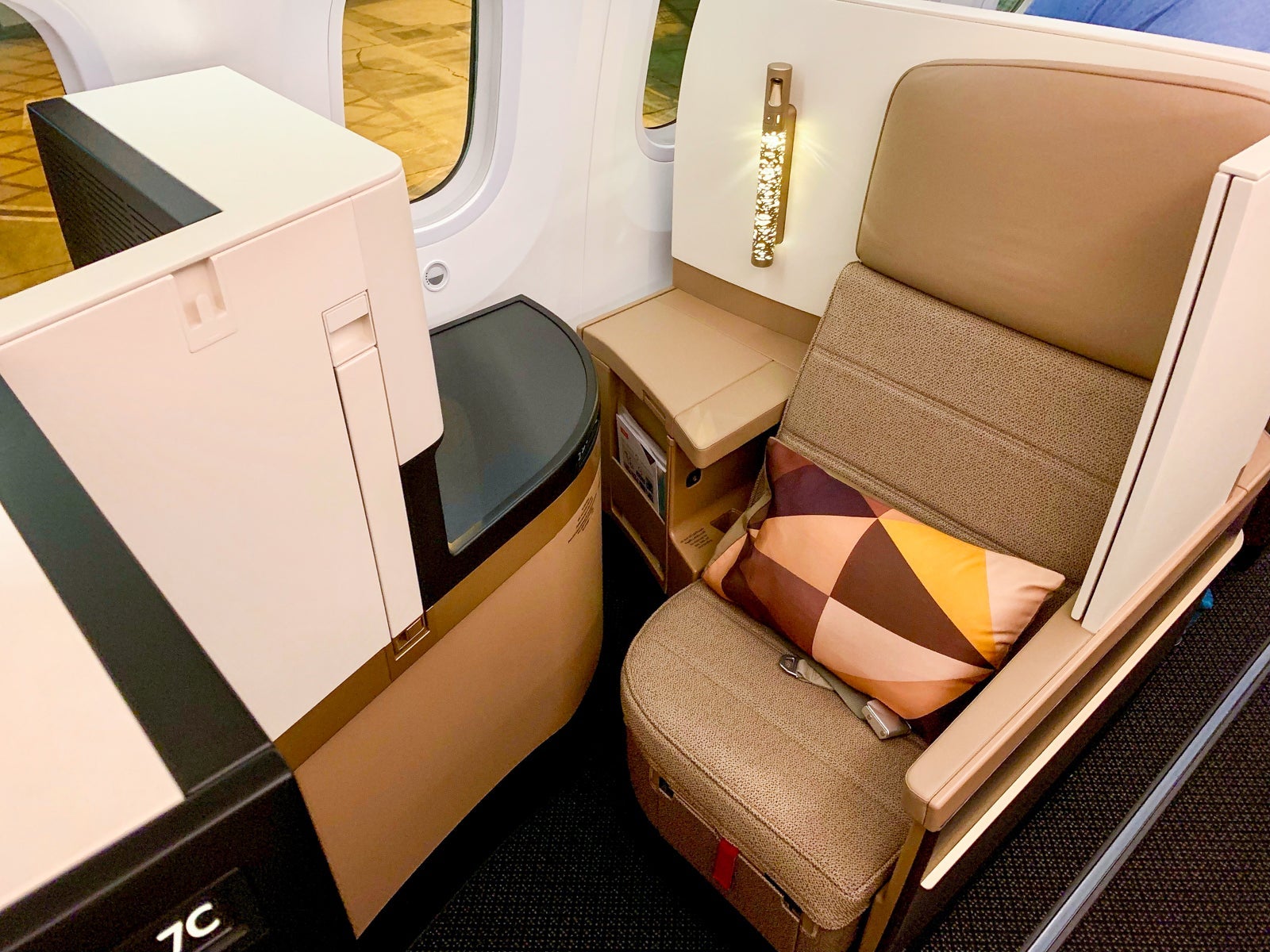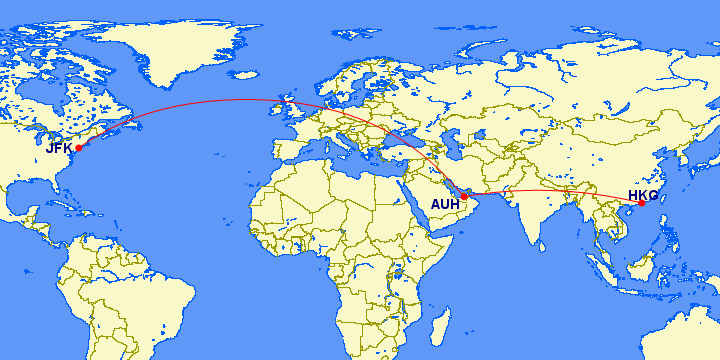Why Chase adding Aeroplan is a game-changer for Ultimate Rewards
Update: Some offers mentioned below are no longer available. View the current offers here.
It's no secret that I'm not the biggest fan of Chase Ultimate Rewards.
In the past, I've found its transfer partners to be lackluster beyond World of Hyatt. United MileagePlus has devalued its award chart time and time again and it rarely makes sense to transfer to Southwest Rapid Rewards. Of course, there are a handful of solid non-exclusive partners like Air France/KLM Flying Blue, but none that provide outsized value.
But that's starting to change. Earlier this month, Chase surprised cardmembers when it added Air Canada Aeroplan as its newest transfer partner. Chase points now transfer to the Canadian airline at a 1:1 transfer ratio. Remember, Air Canada completely revamped Aeroplan in 2020, and the new program is more powerful than ever with no fuel surcharges, cheap stopovers and a standard award chart.
I think that Chase adding Aeroplan as a partner will be a game-changer for Ultimate Rewards going forward. It won't edge out American Express Membership Rewards as my favorite points currency per se, but I may focus on earning Chase points when it makes sense to do so. For example, earning 5 points per dollar on Lyft rides with my Chase Sapphire Preferred® Card through March 2022.
Here, I'll discuss why I think Chase adding Aeroplan as a transfer partner is a big deal. I'll mostly discuss what makes Aeroplan points valuable and compare them with other Star Alliance options in the Chase transfer partner portfolio.
[table-of-contents /]
Why Aeroplan is Chase's best airline transfer partner
A set award chart with no fuel surcharges

When Air Canada revamped Aeroplan, it removed all fuel surcharges and promised to keep award charts. This is a huge deal for Chase cardmembers as its other two Star Alliance transfer partners — United MileagePlus and Singapore Krisflyer — either switched to dynamic award pricing or add fuel surcharges to award tickets. Adding Air Canada actually fixes one of Chase's biggest downfalls: not having a great Star Alliance redemption partner.
Aeroplan has a pretty reasonable award chart too. You can view it on Air Canada's website (PDF link) and it's distance and region-based. Just match the regions you're flying to and from with the award chart, and use a tool like GCmap to find the distance between your origin and destination. Then, match this with the award chart to see how much your award ticket costs.

This is a huge benefit for Chase cardmembers. There's no guessing how much an award ticket costs, as dynamic pricing isn't a factor in pricing. Plus, you can save hundreds of dollars in fuel surcharges compared to booking the same tickets with Singapore Krisflyer if flying with Austrian Airlines, Lufthansa and other Star Alliance carriers that pass on fuel surcharges to customers.
Related: Book this, not that: Star Alliance airlines
Stopovers make Chase points even more valuable
One of the best parts of the Aeroplan program is that you can add stopovers for just 5,000 miles on top of an award ticket. This is a huge benefit and far better than the Excursionist Benefit offered by United MileagePlus, largely because you can add them to one-way tickets (or two to a round-trip ticket).
Better yet, the rules around these stopovers are very relaxed. You can stop over anywhere you'd like en route to your final destination, even if it's in a different region. You can also mix carriers, add layovers and get creative with your routing. The only hard-set rule is that your routing must be under double the physical distance of a nonstop flight to your final destination.
For example, you can book New York-JFK to Frankfurt (FRA) to Singapore (SIN) or Los Angeles (LAX) to Tokyo-Haneda (HND) to Hong Kong (HKG). Regardless of what you book, you'll pay the cost it takes to fly to your final destination plus 5,000 miles. This lets you see two cities for just moderately more than the price of one.

Related: The complete guide to maximizing stopovers and open jaws on award tickets
It gives Chase members a good way to redeem for Etihad flights

Air Canada and Etihad have a non-alliance partnership that lets Aeroplan members redeem points on Etihad flights and Etihad Guest members redeem miles on Air Canada flights. Etihad flights fall into the same standard award chart as other Aeroplan partner flights, so you'll get predictable pricing. You can also add stopovers for 5,000 miles.
This means you can book a business class flight from New York-JFK to Hong Kong (HKG) with a stopover in Abu Dhabi (AUH) for 90,000 Chase points transferred to Aeroplan. This is because the flight clocks in at 10,606 miles and the price includes the 5,000-mile stopover surcharge.

Aeroplan is the only good way for Chase cardmembers to redeem points for Etihad Airways flights. This is a huge benefit for luxury-seeking award travelers who want to sample one of the best business class experiences in the sky.
Related: Flying a 5-day-old plane: Etihad business class on the 787-9
Chase still has a ways to go
There's no doubt that Chase adding Aeroplan as a transfer partner is good news for those with Ultimate Rewards points. At the same time, it doesn't move the needle enough to make them more valuable than Amex Membership Rewards points.
Aside from World of Hyatt, all of Chase's other valuable transfer partners are also Amex transfer partners. This includes Air France/KLM Flying Blue, Singapore Airlines Krisflyer and Virgin Atlantic Flying Club. It's also easier to earn Amex points in my experience. For example, the American Express® Gold Card earns 4x points on dining at restaurants, 4x points at U.S. supermarkets (up to $25,000 per calendar year; then 1x points), 3x points on airfare purchased directly from airlines or American Express Travel and 1x points on all other purchases.
This is higher than the recently revamped Chase Sapphire Preferred card that now earns 3x points on dining and online grocery purchases (excluding Target, Walmart and wholesale clubs) and 2x points on travel, including airfare. That said, it does earn 5x points on flights booked through the Ultimate Rewards Travel portal. So with that in mind, I'll keep putting my everyday spending on my Amex Gold to earn more points to transfer to Aeroplan and others.
But that's just my perspective. To counter my own point, Chase Sapphire Preferred's $95 annual fee is lower than the Amex Gold's $250 annual fee (see rates and fees). Plus, Amex doesn't have any worthwhile hotel transfer partners, while Chase has World of Hyatt. This transfer partner can be extremely valuable when used to book high-end properties.
So while I won't change my own spending in response to this change, it can make sense for many travelers to switch to Chase Ultimate Rewards. It's up to you to run the numbers and see which works best for your everyday spending.
Related: Why I'm no longer chasing Ultimate Rewards
Bottom line
While Chase Ultimate Rewards has long struggled with a lackluster set of transfer partners, the addition of Air Canada Aeroplan marks the start of a much more valuable currency. It provides great redemptions on Star Alliance and non-alliance airlines, and you can book without paying fuel surcharges. Plus, the ability to add stopovers for 5,000 points is an excellent value add.
That said, Air Canada is already an Amex transfer partner, so it won't change my spending habits. At the same time, this new transfer partner makes me more excited to earn Chase points when it makes sense to do so. Plus, it adds a ton of value to the recently refreshed Chase Sapphire Preferred card.
For rates and fees of the Amex Green card, click here.
Feature photo by Nicolas Economou/NurPhoto

